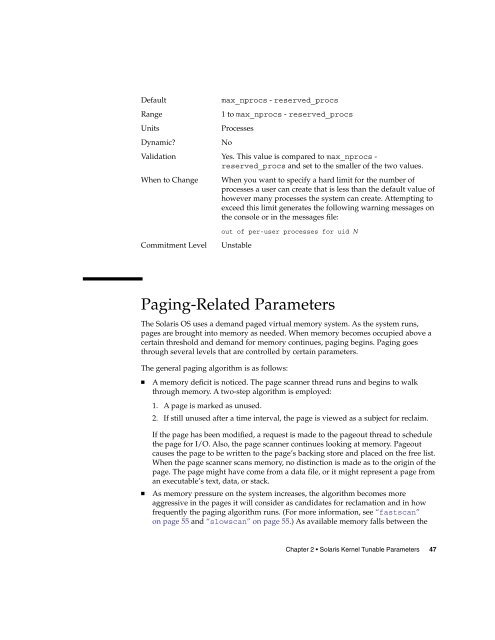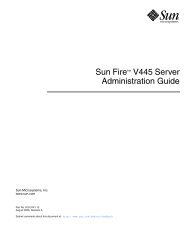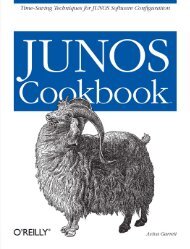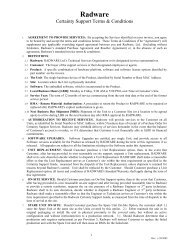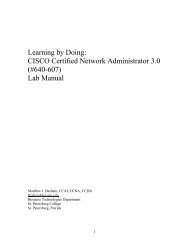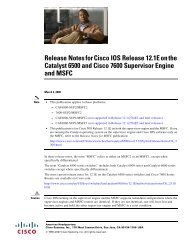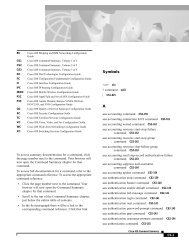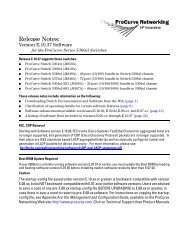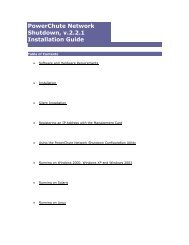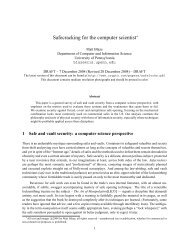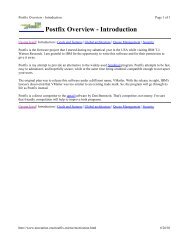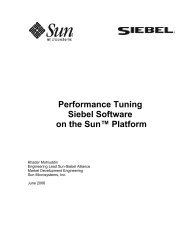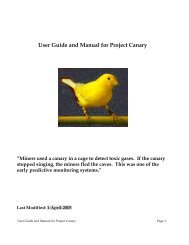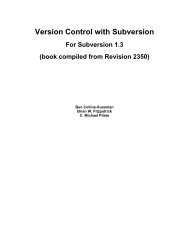Solaris Tunable Parameters Reference Manual - SCN Research
Solaris Tunable Parameters Reference Manual - SCN Research
Solaris Tunable Parameters Reference Manual - SCN Research
Create successful ePaper yourself
Turn your PDF publications into a flip-book with our unique Google optimized e-Paper software.
Default<br />
Range<br />
Units<br />
Dynamic?<br />
max_nprocs - reserved_procs<br />
1 to max_nprocs - reserved_procs<br />
Processes<br />
No<br />
Validation Yes. This value is compared to max_nprocs -<br />
reserved_procs and set to the smaller of the two values.<br />
When to Change<br />
When you want to specify a hard limit for the number of<br />
processes a user can create that is less than the default value of<br />
however many processes the system can create. Attempting to<br />
exceed this limit generates the following warning messages on<br />
the console or in the messages file:<br />
out of per-user processes for uid N<br />
Commitment Level<br />
Unstable<br />
Paging-Related <strong>Parameters</strong><br />
The <strong>Solaris</strong> OS uses a demand paged virtual memory system. As the system runs,<br />
pages are brought into memory as needed. When memory becomes occupied above a<br />
certain threshold and demand for memory continues, paging begins. Paging goes<br />
through several levels that are controlled by certain parameters.<br />
The general paging algorithm is as follows:<br />
■<br />
■<br />
A memory deficit is noticed. The page scanner thread runs and begins to walk<br />
through memory. A two-step algorithm is employed:<br />
1. A page is marked as unused.<br />
2. If still unused after a time interval, the page is viewed as a subject for reclaim.<br />
If the page has been modified, a request is made to the pageout thread to schedule<br />
the page for I/O. Also, the page scanner continues looking at memory. Pageout<br />
causes the page to be written to the page’s backing store and placed on the free list.<br />
When the page scanner scans memory, no distinction is made as to the origin of the<br />
page. The page might have come from a data file, or it might represent a page from<br />
an executable’s text, data, or stack.<br />
As memory pressure on the system increases, the algorithm becomes more<br />
aggressive in the pages it will consider as candidates for reclamation and in how<br />
frequently the paging algorithm runs. (For more information, see “fastscan”<br />
on page 55 and “slowscan” on page 55.) As available memory falls between the<br />
Chapter 2 • <strong>Solaris</strong> Kernel <strong>Tunable</strong> <strong>Parameters</strong> 47


